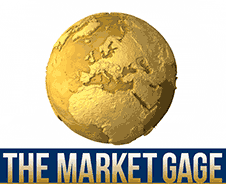
ECB President Mario Draghi said yesterday that he will keep EU interest rates unchanged until summer next year, In contrast, U.S. Fed Chairman Jerome Powell took a more aggressive stance, trying to stay ahead of the curve, announcing continued rate hikes.
These conflicting policies are keeping the price of Gold in a tight trading range.
Yesterday, we saw buying in the European hours and selling in U.S. trading hours. Wall Street traders are still comfortable holding on to their long positions from the $1,285 area. They have indicated that they will just rely on their algorithm programs to execute their trading strategies and concentrate trading in the oil market.
Silver, due to its industrial component, has been holding up a little better than Gold. But holding the price of silver back a bit is the enormous amount of silver on the shelves and the lack of demand in the retail sector.
Commodity hedge funds that bought Palladium last week and moved the market up thirty dollars have now given up and headed to the exits. In the last few days, easing supply concerns and a softer equity market have taken their enthusiasm away, so out they go.
The U.S. Fed & Global Central Banks
Can the Fed’s decision to aggressively raise rates influence central banks around the world to do the same?
In a progressively integrated world economy and financial system, a central bank cannot ignore developments beyond its country’s borders, and the Fed is no exception. This is true even though the Fed’s statutory objectives are defined as specific goals for the U.S. economy. In particular, the Federal Reserve’s objectives are given by its dual mandate to pursue maximum sustainable employment and price stability. It may seem that there is little need for Fed policymakers to pay attention to developments outside the United States.
The state of the U.S. economy is significantly affected by the state of the world economy. A wide range of foreign shocks affect U.S. domestic spending, production, prices, and financial conditions.
To anticipate how these shocks could affect the U.S. economy, the Federal Reserve in the past has devoted significant resources to monitoring developments in foreign economies, including emerging market economies, which account for an increasingly important share of global growth. And of course, actions taken by the Federal Reserve influence economic conditions abroad. Because these international effects in turn spill back on the evolution of the U.S. economy, we cannot make sensible monetary policy choices without taking them into account.
But interestingly enough, because of the strong U S economy the FED has turned a blind eye to the rest of the world’s economies.
One just has to look at the difference between the German Ten Year Bond and the Ten Year Treasury here in the States. Currently the German Ten
year is yielding 4 tenths of one percent where the U S Ten year is yielding 2.92 percent. If you are interested in this market , where would you
invest your money?
But we must signal out that the EU does have its problems. Jitters surrounding the formation of a new government in Italy caused a temporary bout of
turmoil across financial markets two weeks ago. Italian bond yields soared in response to fiscal plans and fears that antiestablishment parties had formed a
coalition that would threaten the country’s euro membership. Subsequent remarks by officials have calmed fears, but a round of criticism of the ECB
by Rome politicians could stick in the central bank’s craw, analysts said.
So I’m sure ECB President Mario Draghi has taken this all into account in announcing he will keep interest rates unchanged until at least next summer.
Two economies heading in different directions. But as good as things look right now here in the states, we cannot continuously ignore our rising government debt, now over 21 trillion dollars and our all-time high household debt approaching 15 trillion dollars. Someday we will be very sorry we didn’t address this issue when we had the chance.
Have a wonderful Friday.
Disclaimer: This editorial has been prepared by Walter Pehowich of Dillon Gage Metals for information and thought-provoking purposes only and does not purport to predict or forecast actual results. This editorial opinion is not to be construed as investment advice or as a recommendation regarding any particular security, commodity or course of action. Opinions expressed herein cannot be attributable to Dillon Gage. Reasonable people may disagree about the events discussed or opinions expressed herein. In the event any of the assumptions used herein do not come to fruition, results are likely to vary substantially. It is not a solicitation or advice to make any exchange in commodities, securities or other financial instruments. No part of this editorial may be reproduced in any manner, in whole or in part, without the prior written permission of Dillon Gage Metals. Dillon Gage Metals shall not have any liability for any damages of any kind whatsoever relating to this editorial. You should consult your advisers with respect to these areas. By posting this editorial, you acknowledge, understand and accept this disclaimer.
